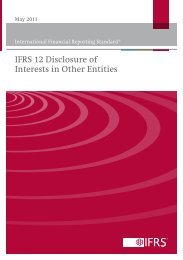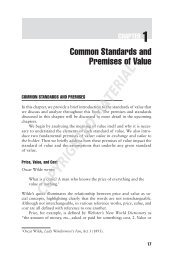ISSUE 5 2008 - Sweet & Maxwell
ISSUE 5 2008 - Sweet & Maxwell
ISSUE 5 2008 - Sweet & Maxwell
Create successful ePaper yourself
Turn your PDF publications into a flip-book with our unique Google optimized e-Paper software.
Crim. L.R. Rape 397<br />
In their Home Office Online Report 20/2006, Section 41: An Evaluation of<br />
New Legislation Limiting Sexual History Evidence in Rape Trials, Temkin and<br />
Kelly recommend that only ‘‘demonstrably false accusations’’ should be admissible.<br />
According to the Report, attempts to introduce evidence of previous false allegations<br />
constituted one of the most common ways in which sexual history evidence was<br />
admitted. The Report stated that defence barristers sought to introduce such evidence<br />
to undermine the complainant’s credibility and that insufficient attention appeared to<br />
be paid to whether the previous allegations were demonstrably false. The Report also<br />
noted that it was very easy to allege that the complainant had made false or unproven<br />
complaints of rape in the past, and that there was some evidence that barristers and<br />
police officers were keen to find out whether previous complaints had been made to<br />
the police or others and to raise this matter in court. Within the profession there is<br />
some recognition that admissibility of false allegations may sometimes be sought too<br />
readily. In Sexual Offences: Law and Practice (2004) Rook and Ward acknowledge<br />
that:<br />
‘‘. ..[I]t is commonplace for the defence to suggest that a complaint is false if<br />
the matter has not proceeded to trial, even though there may have been many<br />
reasons why the case has been dropped, and the falsity of the complaint has not<br />
been established. In such circumstances, the jury may unfairly draw an adverse<br />
inference against the complainant.’’<br />
However, in noting that the falsity of the complaint ‘‘has not been established’’ they<br />
overstate the requirement.<br />
Lessons from America. Ellison suggested in commenting on Garaxo that US courts<br />
impose a more stringent requirement: that there should be a strong factual foundation<br />
for concluding that the prior complaint is false. In fact, the US position is unclear:<br />
‘‘Notwithstanding the uniformity with which the cases require a preliminary<br />
determination of falsity, courts have varied widely with respect to the standard<br />
of proof required.’’ State of Ohio v Boggs (1992) 588 N.E.2d 813.<br />
For example, in State of Wisconsin v DeSantis (1990) 456 N.W. 2d 600, the Supreme<br />
Court of Wisconsin held that the defendant should produce evidence at the pre-trial<br />
hearing sufficient to support a reasonable person’s finding that the complainant made<br />
prior untruthful allegations. The court concluded that the ‘‘reasonableness standard<br />
strikes the appropriate balance’’ between the competing policies and interests of the<br />
defendant and sexual complainants and is consistent with legislative intent.<br />
Criminal Cases Review Commission. The present case underlines the importance<br />
of the work done by the Commission. It is not the first such case. See also Warren<br />
[2005] EWCA Crim 659 where the investigative work of the CCRC revealed significant<br />
evidence in relation to two false allegations in particular that had not been available<br />
to the defence at the time of the trial as a result of non-disclosure by the Crown.<br />
While the police incident report no-criming one of the earlier incidents in which the<br />
victim’s complaint was demonstrably false was disclosed to the defence, there was<br />
no disclosure of the complainant’s admission that she had fabricated the allegation.<br />
Consequently the defence made no application under s.41 in relation to the incident.<br />
The Court of Appeal concluded that had the evidence of the allegations been before<br />
the jury they might well have arrived at a different verdict and quashed the conviction.<br />
Of course, not all evidence of prior false allegations is as unequivocal or as reliable<br />
as was the evidence in the present case and in Warren. CompareStephenson [2006]<br />
© SWEET &MAXWELL






